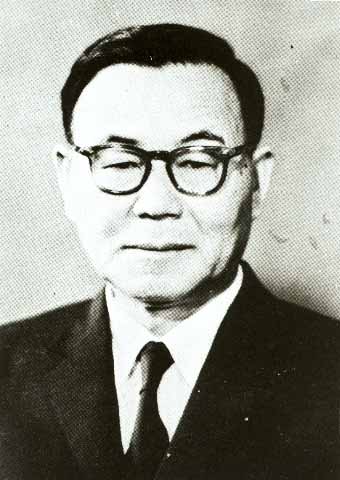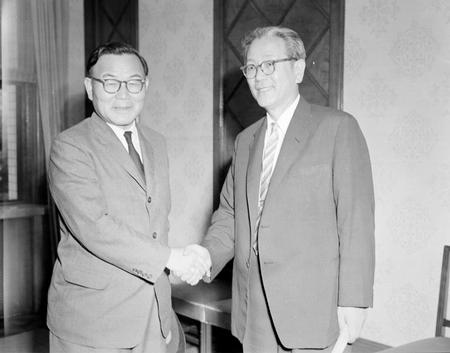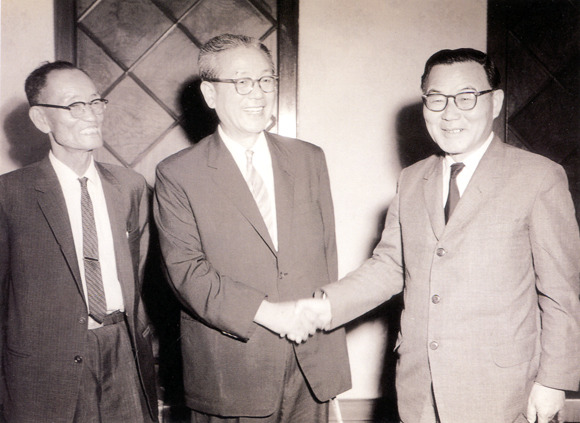<Back to Index>
- Physicist James Franck, 1882
- Writer Zona Gale, 1874
- 4th President of South Korea Yun Bo-seon, 1897
PAGE SPONSOR


Yun Bo-seon (Korea:윤보선, Hanja:尹潽善, August 26, 1897 – July 18, 1990) was a Korean independence activist and politician, and the President of South Korea from 1960 to 1962. Studying in the UK, he graduated from the University of Edinburgh and gained an M.A. After returning home in 1932, he became South Korea's Secretary of Chief of Staff, Mayor of Seoul, Minister of Commerce, Representative in the Supreme Council for the Democratic Party and, finally, President of South Korea.
He serbed for 20 years as leader of South Korean's opposition, Anti - Park Chung-hee Activist, Anti Fasism and Democracy activist activist. He was nephew of Yun Chi-ho, another of Korea's independence activists and politicians. Yun Bo-seon was born in Dunpo, Asan County, in 1897. He was a son of Yun Chi-So(윤치소, 1871 – 1944) and Lady Lee Bum-Sook (이범숙, 1876 – 1969). Yun graduated with an M.A. from the University of Edinburgh in 1930. He returned home in 1932. Then, he entered politics in 1945 after the end of the Japanese occupation, having Syngman Rhee as his mentor. In 1947 Yun was South Korea's Secretary of the Chief of Staff. In 1948, Yun was appointed by Rhee as mayor of Seoul.
A year later, he was appointed as the Minister of Commerce and
Industry. Soon, he started to disagree with Rhee's authoritarian
policies. He then served as president of the Red Cross Society, before being elected to the National Assembly in 1954. A year later, he founded the opposition Democratic Party along with several others. In 1959 he bacame representative of the Supreme Council for the Democratic Party. After
Rhee's government was ousted by a student - led pro-democracy uprising,
Yun was elected president on August 13, 1960. He was merely a
figurehead, as South Korea had switched to a parliamentary system in
response to the authoritarian excesses of Rhee's regime. After Park Chung Hee's
coup in 1961, he stayed on briefly to provide legitimacy to the regime,
but resigned on March 22, 1962. He opposed Park's authoritarian rule
and ran for president twice in 1963 and 1967, losing each time. After
receiving suspended sentences several times for anti - government
activities, Yun retired from politics in 1980 and focused primarily on
cultural activities until his death from diabetic complications and high blood pressure in 1990.
